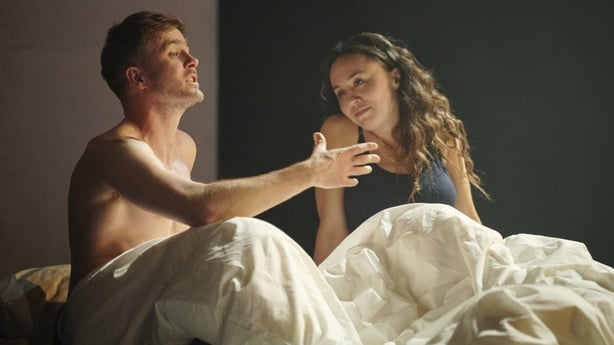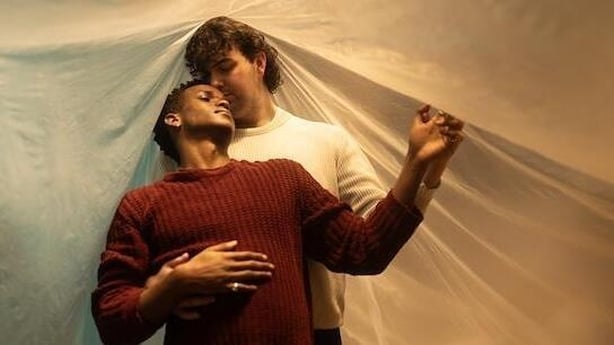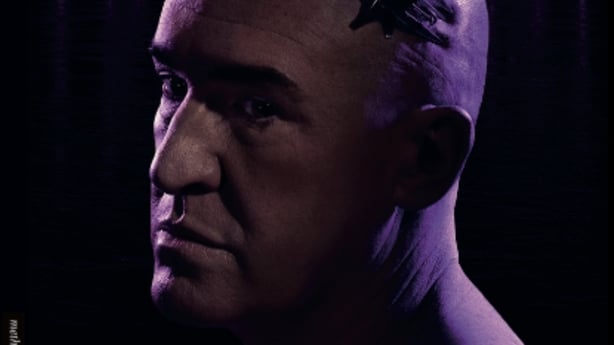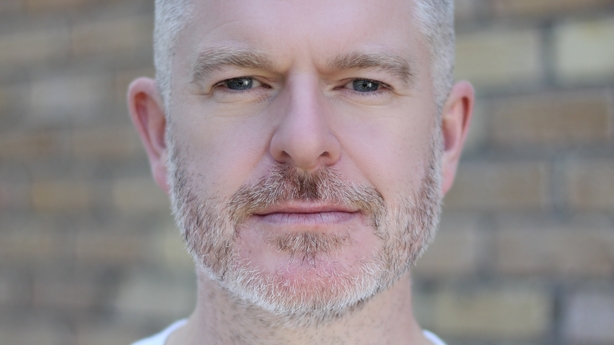Opinion: 'New plays are now seen as a risk on our stages...' Phillip McMahon makes a case for the need to support new writing for Irish theatre.
I am a playwright. Self taught, and in many ways self made.
Words have always been my refuge. A place to escape to, a shield, a shelter. Writing plays and making theatre has not been an easy path, but it has been rewarding and I have enjoyed gorgeous successes that have made the struggle along the road worth it.
I'm proud of what I've achieved, but even with some glittering notches on my Microsoft Word, the hustle and heartache of trying to get a play off the page and onto a stage never ends - even for those deemed 'established’. In fact it’s getting harder.

Conversations After Sex in 2020
I may be uniquely placed in this particular discussion. As well as writing plays; within my theatre company THISISPOPBABY, I also commission, edit, produce, mentor and direct new writing. I write this piece as a solutions-focussed advocate for playwrights, new plays, and audiences. I write this because I care.
We name bridges after playwrights (male ones anyway). Defence ships, too (I’d be curious to hear Mr Beckett’s thoughts on this). My cousins even live on Sean O’Casey Avenue in Dublin. As a nation, we are no strangers to celebrating playwrights; to understanding their contribution to society, to our sense of nationhood, to our national psyche. So what’s gone wrong?
"The young Irish playwright's journey is cloudy, uncertain and powered on determination."
- Felicia Olusanya, Playwright
It’s oft-said that our last heyday of Irish playwriting took place in the 1990s; a time when our plays were fashionable internationally, and playwrights like Marina Carr, Conor McPherson, Enda Walsh and Mark O’Rowe were moving plays with seeming ease between Ireland and London, with Martin McDonagh’s plays taking Galway and Broadway by storm. There seemed to be no question over whether there was an audience for new plays. There simply was. Irish stories were cool, Irish writers sexy, and audiences at home and abroad couldn’t get enough.
Somewhere along the way, that confidence in artists and audiences was eroded. The dismantling of the independent scene played a part, no doubt. As did a move away from the ‘well made play’ towards experimental (and often brilliantly interesting) devised work. By the time the recession spat us out, plays and playwrights were left adrift.

New plays are now seen as a risk on our stages. Finances play a big part. We are in a cost-of-everything crisis, with production costs higher than ever, adding to the pressure for everything that is staged to be a financial success. I’m clear eyed when it comes to the industry's financial reality, but creativity dies when we are hostage to it. When bums-on-seats is the driver, programming becomes risk averse, and the resulting theatre is stale.
Plus, I’d offer this - if you can’t sell a new play, rather than put on an old play, think about taking a marketing course. Great theatre is great theatre, and part of the puzzle is meeting audiences in their own spaces and inviting them into our auditoriums to experience new work that speaks directly to them.
Classics, canon, beloved hits and adaptations are wonderful in a thriving theatrical tapestry, but if we only rotate those plays, we leave no room for new urgent voices, and we are not offering new and first-time audiences a genuine access point to theatre.
"Trying to become a playwright now in this country is like turning up to the station twenty five years after the last train left. And the scary scary question is: do you cling on, claw out a life, in the hopes that maybe one day trains run again?"
- Ultan Pringle, Playwright
I recently squeezed into a performance of the fresh and brilliant Boyfriends by Ultan Pringle and Lemon Soap Productions at Project Arts Centre. The piece had received Project Award funding from the Arts Council. Despite this, Ultan was having to live with his father while he worked on the play, and told me that he "still couldn’t make ends meet if my Dad didn’t shout me a four pack of beans in Lidl each week". These are the sacrifices playwrights make to get their work seen. Boyfriends was the kind of piece that transports you entirely for 90 minutes, and gives a window into, and understanding of, a generation other than your own. I sat post show, on one hand excited, and on the other, kind of panicked, because that show could very well be a creative cul-de-sac for Ultan. Where does talent like that go in Ireland? Where is it nurtured, housed, grown, celebrated?
What does a playwriting career look like in this country?
"When it comes to writing I love water analogies. There is one wellspring: the writer. The institutions, theatres and funding bodies are the water carriers. Then you need the right kind of vessel to carry the weight of the water. For every play there is the right vessel. Without writers there is nothing to put in the vessels and audiences go thirsty. Like water, we need stories to survive. And like water, the wellspring must be maintained and protected."
- Sonya Kelly, Playwright
Theatre finds itself in a curious spot, where, in my opinion, it’s in danger of not justifying itself as an urgent, current artform. If theatre is to survive and thrive, new audiences need to be flooding into our foyers. And new audiences want new stories. They want to see themselves represented on our stages. They want to see shows that are current, vibrant, sexy. I know this because myself and my collaborators at THISISPOPBABY are filling theatres, telling new stories to large audiences, new and existing.
And we are not the only ones. There is great work being done across the country on stages of all sizes and at all funding levels - Landmark, The New Theatre, Glass Mask, Scripts Festival, The Baptiste Programme, Scene & Heard, OnceOff, Bewley’s and Galway Theatre Festival are just some of the entities creating continuous platforms for new writing and new voices in spite of stretched resources.

Fishamble: The New Play Company is in many ways the custodians of new writing in Ireland; but the company’s Literary Manager Gavin Kostick agrees that we have a problem in the sector with getting plays to production and raises the issue of ‘death by supports’, alluding to a hamster wheel of supports and schemes for writers, without ever leading to production. Playwrights write plays to be produced, but often find themselves stuck in unending processes. Fishamble has given many writers their ‘big break’, but they are one (brilliant) independent company and can only produce two to three new works a year, with a roster of up to six productions at home and on tour at any given time. It’s more than any other company in the country, that’s for sure.
But here’s the thing. We are actually in a new heyday for Irish playwriting. It looks different to the last one, but it’s exciting and offers hope. Sonya Kelly has just won the illustrious Windham Campbell Prize for playwriting. Ciara Elizabeth Smyth’s Lie Low has just played a sell-out season at London’s Royal Court Theatre, Margaret Perry’s Paradise Now was nominated for an Olivier Award at this year’s ceremony, the Scene & Heard Festival is teeming with young people on and off the stage, Mark O’Rowe has returned with a unicorn of a new play - that is, one with a large cast - which plays the 1000+ capacity Gaiety Theatre as part of this year’s Dublin Theatre Festival. Artists and audiences are engaged with playmaking in a way that we haven’t seen in years. And the opportunity is for our industry to join the dots, and moreover to make a renewed, loud commitment to new plays and playwrights.
"What could break this vicious circle? A new writing theatre - a theatre that can build an audience over time, leaving the theatre-makers free to write and make their theatre. A theatre that can develop a reputation for exciting, edgy, responsive new work. A theatre that could be an engine of new playwriting."
- Colin Murphy, Playwright
I asked colleagues who they thought was responsible for the future of new writing in Ireland. Unsurprisingly nobody offered a definitive answer. The Arts Council came up often, the Abbey Theatre, too - but all agreed that we couldn’t look to any one entity to solve this crisis. It will take coalition, cooperation and commitment from across the theatre sector - all things our community is famous for. It will also take investment - time, people and money. From the conversations I’m having, so many people are ready to roll up their sleeves and do the work.

Theatre is a powerful medium with unlocked potential for our modern age. The invitation is wild. Come and sit shoulder to shoulder with your fellow citizens and see the world rearranged and reflected back at you. Come bear witness to another person's story, point of view, journey. Come and build value systems together through shared joy, heartache, catharsis. Our theatres are town halls of ideas and dreams; shared civic spaces for empathy and understanding. There’s increasing power in being in analogue spaces together. And in our divided, polarised and chronically online world, theatre of the now can really help.
A future classic is being written right now. But will anyone stage it?
About the author: Phillip McMahon is a playwright based in Dublin. His latest play, Once Before I Go, premiered at The Gate Theatre and has since been added to Ireland's Leaving Certificate syllabus. He is co-director of THISISPOPBABY, Artistic Associate at Lyric Hammersmith Theatre, London, and Creative Fellow at Birkbeck University, London.
The views expressed here are those of the author and do not represent or reflect the views of RTÉ

